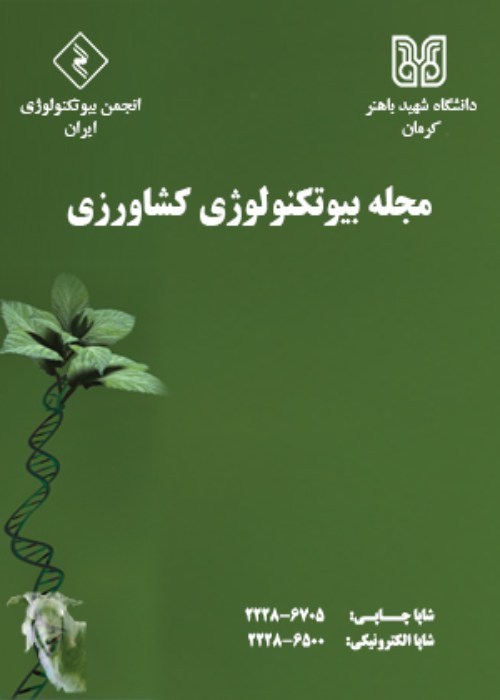The expression pattern of ZmNHX1, ZmHKT1, and ZmMYB30 genes in maize under salinity stress
Environmental stresses affect the growth and development of crops during the growing season. Soil salinity is one of the most important environmental stresses that reduce crop yield. Understanding the mechanisms of coping with stress in plants at the molecular level can be effective in providing an efficient way to improve stress-tolerant plants. To save energy, plants do not express all their genes, simultaneously. Rather, depending on environmental conditions, they activate genes that are needed in a particular situation. For instance, in response to salinity stress, the expression of several genes in plants including HKT1 and NHX1 transporters is changed. In this study, variation in the expression of ZmHKT1 and ZmNHX1 genes along with the ZmMYB30 transcription factor were investigated in two salt-tolerant and salt- sensitive maize lines with real time polymerase chain reaction technology.
Maize salt-tolerant line (P14L2) and salt-sensitive line (MO17) seeds were grown in plastic pots containing perlite and peat moss in 2:3 ratios under controlled conditions in growth chamber, and Hoagland solution was used to irrigate plants. In the eight-leaf stage, salinity stress from NaCl source was gradually applied to half of the pots starting from a concentration of 5 ds/m for three days, and from the fourth day onwards, salt stress was applied at a concentration of 8 ds/m for 7 days. The other half was used as control. Then, 24 hours (as short-time salt stress) and 7 days (as long-time salt stress) after the salinity stress, the roots and leaves of the plants were sampled in liquid nitrogen. RNA extraction was performed from leaf and root samples, and cDNA was then synthesized. Gene expression was assessed with real-time PCR. The Actin gene was used as the reference gene. The experiment was performed in 2 biological (experimental) and 3 technical (laboratory) replicates. Finally, the changes in the expression of genes were measured.
Increased expression of ZmNHX1 gene in root tissue during the short-time and in leaf tissue during the long-time in the tolerant line, and also increased expression of ZmHKT1 gene in the root tissue during the long-time in the tolerant line compared to the sensitive line probably indicate a positive role of these genes in resistance to salinity stress in maize. The highest relative expression of MYB30 gene in both tolerant and sensitive lines was related to root tissue during the short-time, which over time a significant decrease in the expression of this gene was observed in both lines.
The results of this study can be potentially useful in maize breeding programs to produce salinity resistant cultivars.
- حق عضویت دریافتی صرف حمایت از نشریات عضو و نگهداری، تکمیل و توسعه مگیران میشود.
- پرداخت حق اشتراک و دانلود مقالات اجازه بازنشر آن در سایر رسانههای چاپی و دیجیتال را به کاربر نمیدهد.



